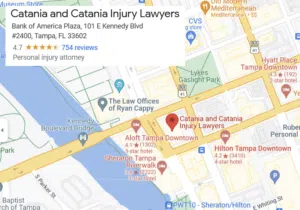
Negligence claims are among the most common claims in civil court. They are typically filed under state law for numerous types of accidents. However, each state has its own negligence laws and legal standards.
If you have been injured due to negligence, make sure you speak to an experienced personal injury attorney. You may be entitled to damages for your medical bills, lost wages, and pain and suffering.
Table of Contents
What is Tort Liability?
Tort law is the area of law where negligence is found. It is the general area that individuals turn to for compensation when another injures them. It includes negligence and intentional torts like assault and battery.
When Can You Make a Negligence Claim?
You can often make a negligence claim when someone injures you through carelessness. There are four legal elements necessary to win a negligence claim:
1. The defendant owed you a duty of care;
2. The defendant breached their duty;
3. The breach caused harm; and
4. The harm resulted in damages.
The initial step in any negligence claim is for the victim to prove the defendant owed them a duty of care. Duties arise from law and custom. You may owe others a duty and not even know it.
All drivers have a duty to others to obey traffic laws and drive safely. Property owners owe guests a duty to maintain their properties in a safe condition.
Duties often arise from special relationships, such as lawyer-client relationships and doctor-patient relationships. Likewise, manufacturers owe consumers a duty of care to make safe products.
What Does it Mean to Breach One’s Duty?
To prove negligence, you must show the defendant breached their duty of care to you. In general, breaching a duty of care means the defendant failed to act as a reasonable person and caused your injury.
The reasonable person is a standard of behavior that helps juries determine whether a person was negligent. If a person fails to act as a reasonable person would have under similar circumstances, a jury might find them negligent. Juries determine what is reasonable under the circumstances.
For example, drivers breach their duty of care to others by violating traffic laws and driving dangerously. Property owners breach their duty to guests by allowing dangerous conditions on their property. Manufacturers breach their duty to consumers by making dangerous and defective products.
How Do I Prove Causation?
The next step in a successful negligence claim is proving causation. It’s not enough to show the defendant breached their duty to you. You must show that the defendant’s breach of duty caused you harm.
To do this, you must provide evidence showing you would not have been injured “but for” the defendant’s misconduct. In most cases, this task will be relatively straightforward.
For example, suppose a driver runs a stop sign and collides with your car, causing whiplash. You would not have suffered injuries “but for” the defendant running the stop sign.
You must also prove the defendant’s conduct was the “proximate cause” of your injury. This means that you were a foreseeable victim with foreseeable injuries. You cannot sue a defendant for conduct that was only remotely connected to your injury or accident.
Returning to our example: you, another driver, were a foreseeable victim of the defendant’s traffic violation. You also had a foreseeable injury: whiplash. Therefore, the defendant’s conduct was the cause of your accident.
How Your Fault Matters in An Accident
Multiple people often share fault for an accident. In other words, multiple people can be negligent and cause injury, including an injury victim.
Florida operates under a pure comparative fault standard. Under pure comparative fault, you are entitled to recover at least some money for your damages as long as you are not 100% at fault for an accident. A court or jury will determine how much each party was at fault and reduce each party’s recovery by that amount.
Suppose you are injured in an accident and incur $100,000 in damages. If you are 25% at fault, the court will reduce your maximum compensation to $75,000 (75%).
This standard allows you to recover compensation even if you are mostly at fault for your accident. If the court determines that you were 95% at fault in the same scenario, you can still recover $5,000 in damages.
Contact a Tampa Personal Injury Attorney for Help
If you have been hurt because of someone else’s negligence, you should get in touch with an attorney as soon as possible. An attorney can investigate your accident to gather evidence and identify liable parties. They can negotiate a settlement with insurance companies for your financial losses. Moreover, they can take your case to court to get the compensation you need.
Our lawyers at Catania and Catania Injury Lawyers can help you. Contact our Tampa injury office near you online or call us at (813) 222-8656 to discuss your case.




